Why is it that most people feel such empathy for elephants, even if they have never had close contact with them?
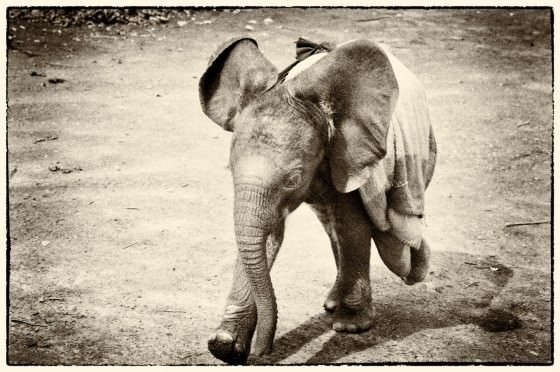
Is it because of their size, their quaint characteristics, or the fact that they are so incredibly endearing as babies, tripping over little wobbly trunks that seem to serve no useful purpose other than get in the way? Or is it, perhaps, because elephants are "human" animals in terms of emotion, and in many other ways as well, encompassed by an invisible and mystical aura that reaches deep into the human soul in a mysterious way that defies human logic.
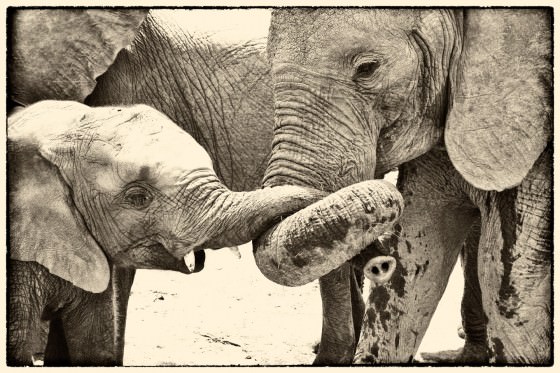
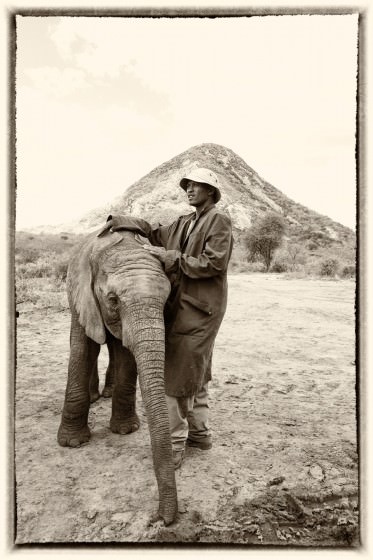
I can vouch for that, for I have worked intimately with elephants for 55 years. My team and I have hand-reared over 150 orphaned elephant babies to date, some from the day they were born. I have known them intimately through infancy and childhood into their teenage years and even well beyond. For like us humans, some elephants like to stay in touch with those they love.
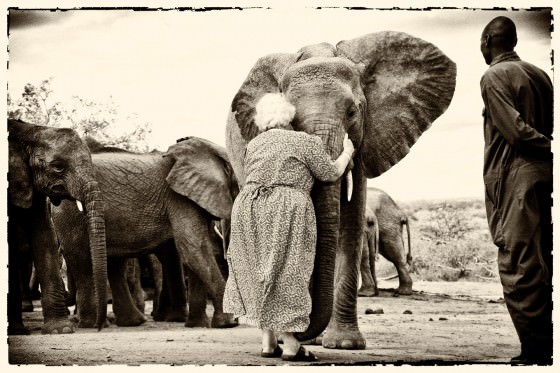
Every elephant we rear is returned back where it rightly belongs to lead a normal elephant life back amongst its own kind, to cover vast distances in enormous elephant strides, enjoying the companionship of others, fulfilling all the tasks in life elephants were designed to do such as modifying habitats to trigger wildlife’s cyclic and eternal rhythms between grasslands and scrublands essential to the long-term survival of grazing species as well as browsers.
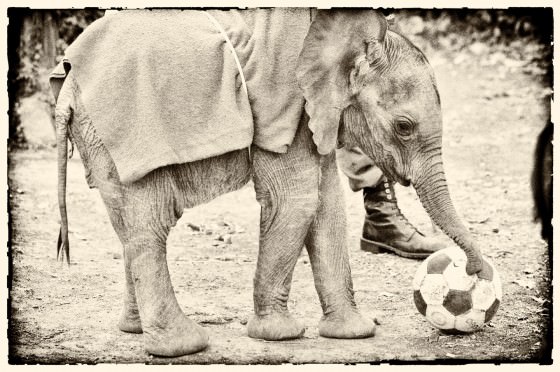
During my long association with the orphaned elephants, many have chosen to remain in touch with the human family that replaced their lost elephant family and whom they love as deeply as their elephant peers. Many have brought their wild-born babies to share them and their joy with their human family, and many have returned to seek the help of their human family when wounded or sick. All our orphaned elephants return to a normal elephant life in the Tsavo National Park in Kenya, which is a protected area the size of Michigan State, and as such can offer an elephant the quality of life it deserves.
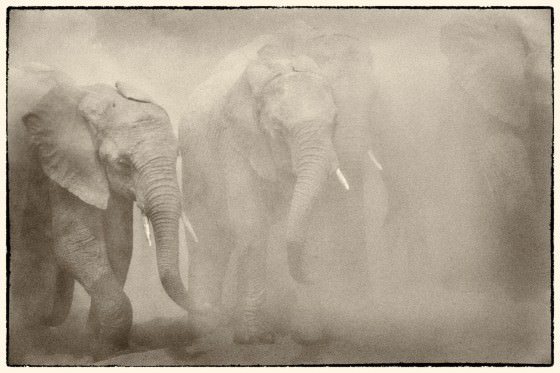
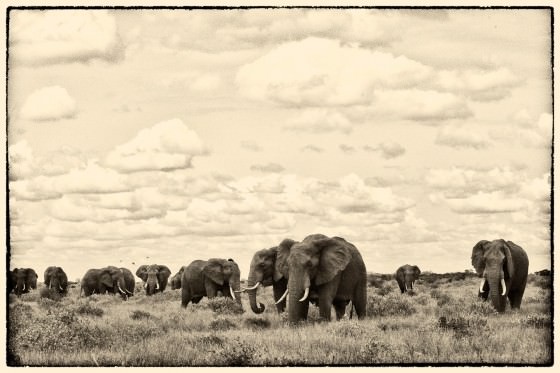
Whilst it has not always been so, it is now accepted scientifically that elephants share with us many human traits. For instance they have the same span of life, (three score years and ten, all being well) and that they develop at a parallel pace so that at any given age a baby elephant duplicates a human of the same age. Their brain is four times the size of ours and convoluted, indicating that elephants can reason and think. It has also been proven that the part of an elephant brain responsible for memory is far more sophisticated than that of a human.
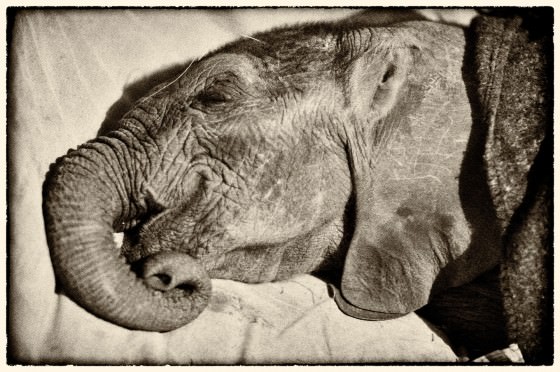
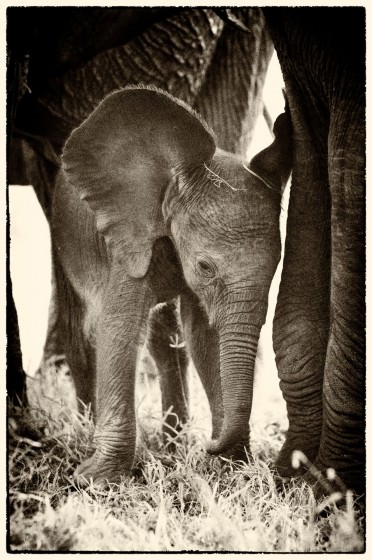
They share with us a strong sense of family and they also share with us a deep sense of death. I know that they grieve and they mourn, just as we do at the loss of a loved one and that they shed tears and suffer depression. They have a sense of compassion that projects beyond their own kind and can extend to other species in distress. They help one another in adversity, miss absent loved ones, and when you know them really well, you can see that they even smile when having fun and are happy.
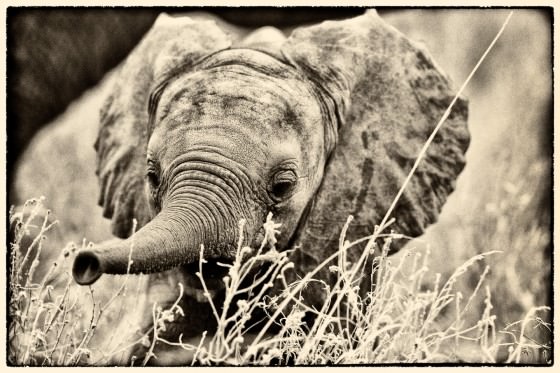
Each elephant is a unique individual, just as are we, and each has its own unique personality. They can be happy or sad, placid by nature or more volatile. They can even be playfully mischievous, delighting in playing harmless pranks on other members of the family or herd. However, they are taught discipline from a very young age by their senior matriarchs. They know envy and jealousy, can throw tantrums and harbour grudges about a perceived injustice, just like human children. And just like human children, they can be competitive for rank and status amongst their peers. This applies to both males and females, for elephant society is complex, where female family units remain united for life, led by the oldest female of the group who is known as the Matriarch. Young bulls remain with the female family until puberty, but then prefer the company of other bulls so that they can spar with one another in tests of strength and dominance, often attaching themselves to high ranking and revered adult role models, whom they emulate, and learn from. However, they will always still keep in touch with their female family and visit them from time to time, but they are the scouts of elephant society, who must be more adventurous and seek out safe havens for their female loved ones. They prefer a more independent existence, for boys will be boys. That said, bull elephants are also very caring of the young.
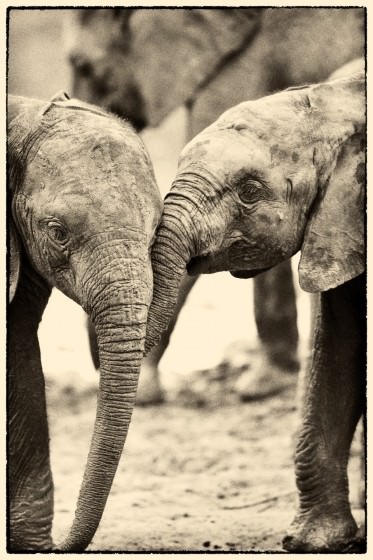
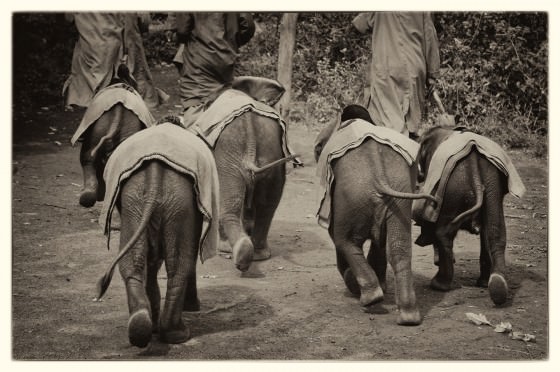
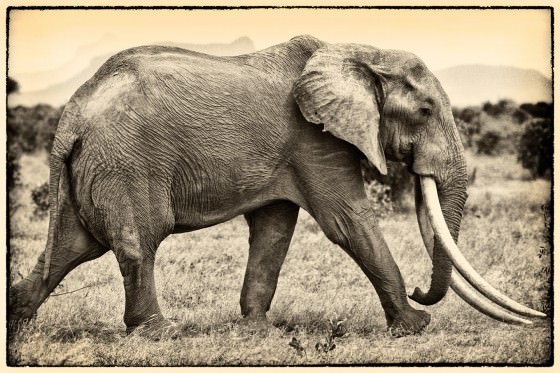
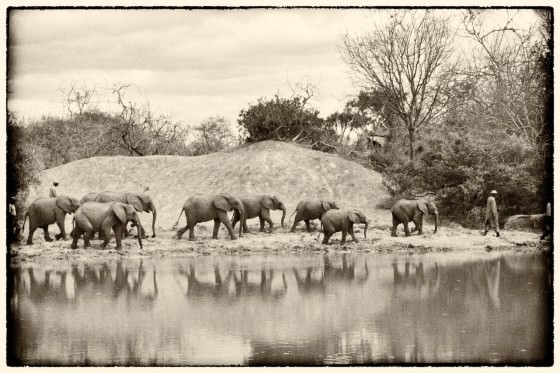
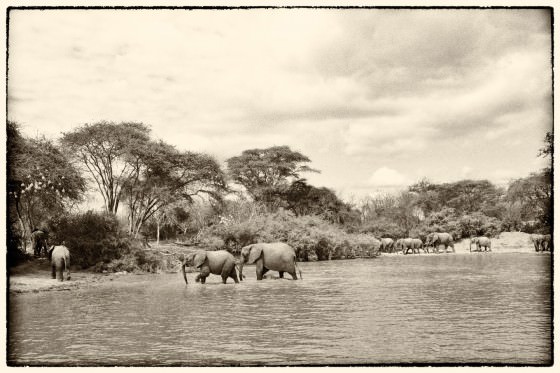
Elephants are essentially peaceful and peace-loving animals despite their undisputed strength and enormous size. They are also essentially very fearful animals that are terrified of the unknown. Like human children they are more fearful of the dark, for like us they have limited night vision. But they have been endowed with many additional attributes that we humans lack such as the ability to communicate over distance using low range sound hidden to human ears.
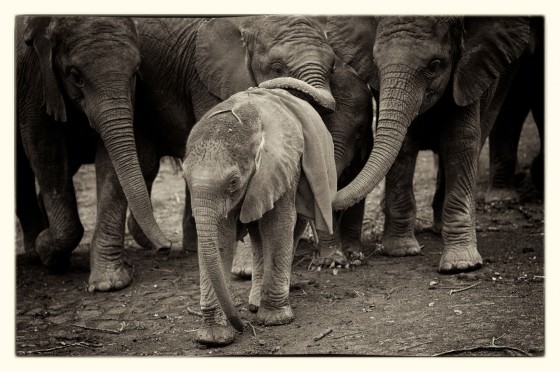
Unlike us and other primates who have to learn everything the hard way, elephants are born primed with knowledge vital to survival, which is imparted to their brain in their mother’s womb. Knowledge about what to eat and what not to eat, subservient gestures about how to behave when confronted with an older, stronger stranger in order to avoid conflict and so on. Their sense of scent, like their hearing, is incredibly sophisticated. Trunk to the ground, they can follow a scent trail unerringly and at a run. They can decipher chemical, hormonal messages, and they have a mysterious perception that defies all human logic, able to foresee important events ahead of time. We have witnessed this time and time again amongst our orphaned elephants.
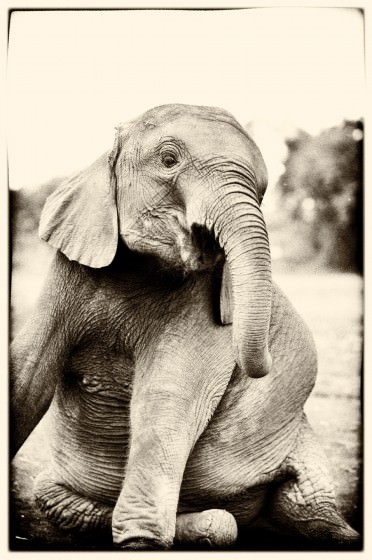
I have been privileged to live amongst elephants (and other animals too) all my life, observing them in a wild, and hand-rearing their orphaned young. But it has been the rearing of the infant milk dependent babies that has given me an in depth insight into the elephant psyche. Hand in hand with the good times, have come heartbreaks in abundance, but each elephant life saved has rewarded us richly with untold satisfaction. When rearing long-lived animals such as elephants, one must dig deep from inner reserves to find "staying power," for it is a long-term assignment parallel to raising a human child. It took me 28 long years to perfect the milk formula and complicated husbandry vital to success in terms of rearing the newborn elephants, and in the process each one that died shredded my heart.
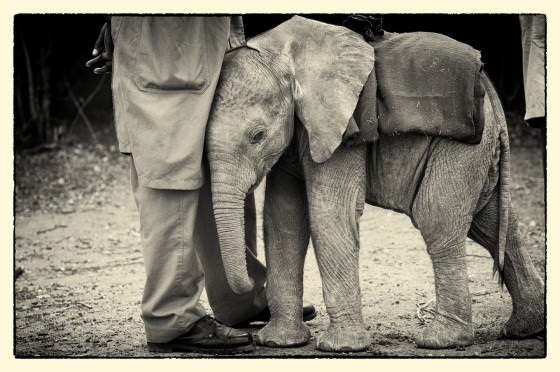
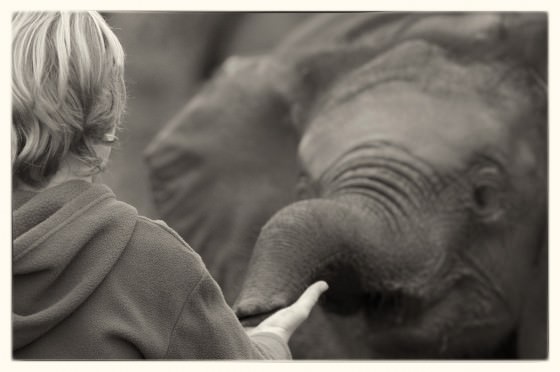
Animals are indeed more ancient, more complex, and in many ways more sophisticated than man. In terms of Nature they are truly more perfect because they remain within the ordered scheme of Nature and live as Nature intended. They are different to us, honed by natural selection over millennia so they should not be patronised, but rather respected and revered. And of all the animals, perhaps the most respected and revered should be the Elephant, for not only is it the largest land mammal on earth, but also the most emotionally human.